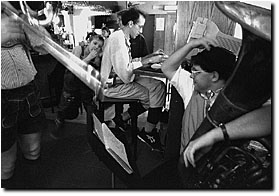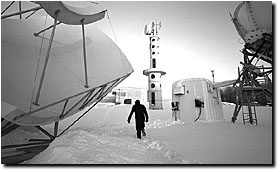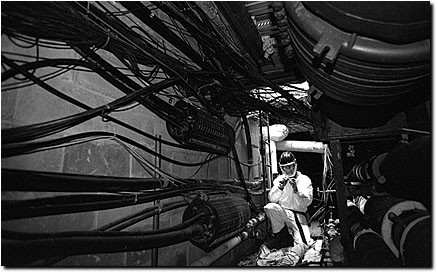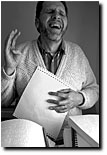
Professor Virgil Cook of Virginia Tech is blind. His computer synthesizes speech from text so he can participate on the Net. Cook says his new found electronic ability has completely changed his life. (Photograph by Randy Olson)
|
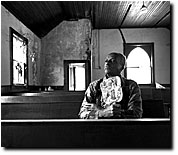
The Freedman's Church in Blacksburg, Virginia, built in 1869 by emancipated slaves, was falling into disrepair. Habitat for Humanity members used the Internet to organize a renovation project. Harvey Hicks, pictured, who lived on the property and lost a son to a fire there, was overjoyed by the church's new lease on life. (Photograph by Randy Olson)
|
|
In Blacksburg, the corner bank discusses marketing plans electronically with other banks around the world. Wade's Grocery sells flowers over the Internet, and it is experimenting with allowing complete shopping online. And residents can apply for basic town permits (public gatherings, animal licenses, and the like) and post public announcements electronically. So far, the project has connected more than 14,000 of Blacksburg's 36,000 residents. There are high-speed connections in all student dorm rooms, and there's a push to install Ethernet and other high-speed connections in new construction.
|

